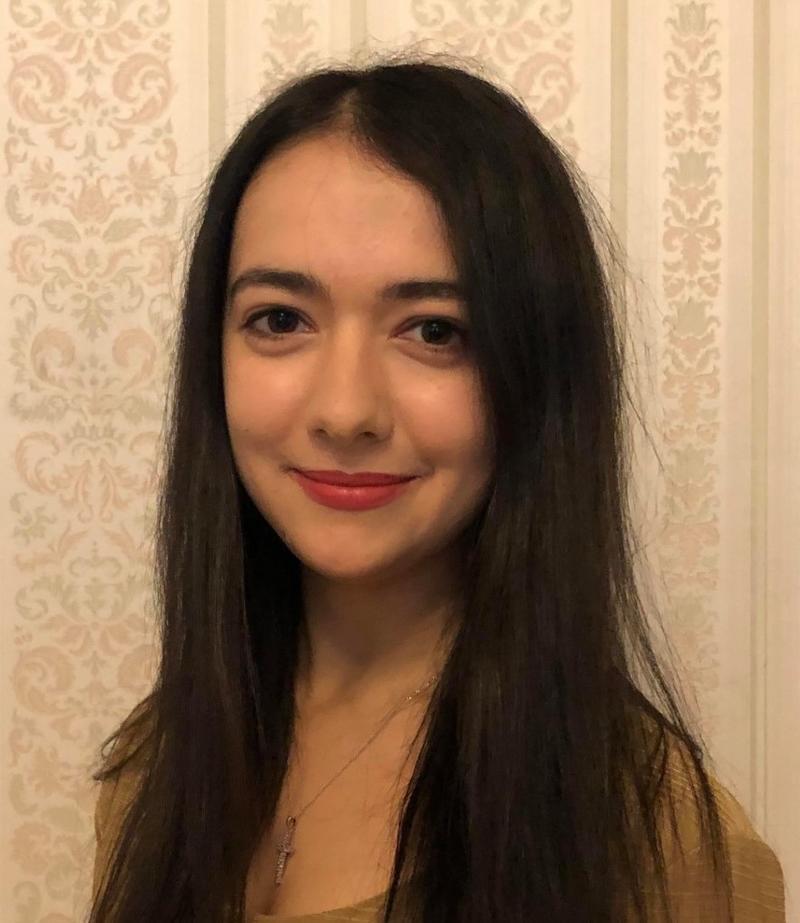Spotlight on Staff: Dr Elena Violaris

Tell us about your research interests
A common theme that unites the strands of my research is an interest in how literature engages with worlds and world-making, whether these worlds are expressed through stories-within-stories or cultures-within-cultures. My next research project is a comparative study of contemporary British postmigrant (i.e. descendants of migrants) literatures from different communities. My previous project investigated the relationship between levels and play in postmodern and contemporary American fiction, exploring narrative levels in metafiction, physical levels in architecture, and digital levels in computer games.
I have published or forthcoming work on cognitive reasoning mechanisms in James Joyce’s Finnegans Wake; chaos theory and Shakespeare’s King Lear; consumption and play in the confectionery industry; and the semiotics of the yellow smiley face in David Foster Wallace’s Infinite Jest.
Which book had the biggest impact on you?
There are quite a few books I consider ‘turning points’, both on a personal and academic level. As a teenager, I was obsessed with Little Women and the way it captured the intricacies of growing up, to the extent that I made my family watch all the film versions from 1933 onwards. I also loved Charlotte Brontë’s Villette, which I thought was a masterful character study. During my BA, I was captivated by the medieval poem Pearl, which stimulated strange, mystical dreams and an interest in the relationship between mathematics and literature. This led to me reading and writing on James Joyce’s Finnegans Wake, which revolutionised my understanding of the capacities of language. Later, Jean Baudrillard’s Simulacra and Simulation strongly influenced the direction of my PhD work – and, despite the temporal discrepancy, chimed into the same interests that underpinned my affinity with Pearl. Most recently, I found Chimamanda Ngozi Adichie’s Americanah fascinating in its depiction of cultural mediation, and this novel had a significant impact on the direction of my postdoctoral work.
What do you do in your spare time?
I like to spend time with my partner, Andreas – whether through long walks, watching films, travelling, or taking secret videos of his singing. I also like to socialise with friends and family.
As a child, what did you want to be when you grew up?
In order from the ages of 6-16: an acrobat, a pilot, a ballerina, an archaeologist, an actor/illustrator (simultaneously), a novelist, a film director, and an academic.
Who had the greatest influence on you during your childhood?
My parents, who encouraged my siblings and me to think outside the box, and who have always been very supportive of our ambitions. Now that I’m older, I particularly appreciate their immense efforts in helping us develop a strong work ethic – and teaching us Modern Greek!
Who were your childhood heroes?
My aunt Sally Violaris-Colman has always been a source of inspiration for me. She contracted encephalitis at the age of five, which left her with considerable mobility and speech impairments. However, she has always been determined to live life to the full, completing an Honours degree in Sociology and Criminology by painstakingly typing essays with one finger, publishing an anthology of creative work, and travelling all over the world. She is a major role model for perseverance and willpower!
Were you popular as a teenager?
No – I was generally seen as shy and quiet. However, I was lucky to be part of a big and incredibly imaginative friendship group with whom I’m still very close (the Colony!). It’s interesting how trivial teenage popularity turns out to be compared with how significant it can feel at the time, and how much more important it is to find lasting relationships.
What is your favourite music?
I like Greek music, especially the ‘entechno’ genre, with lyrics by Lina Nikolakopoulou. I’m interested in political songs that capture the texture of a particular epoch or historically significant moment. I also enjoy listening to music from different cultures, even if I don’t understand the language. Examples include ‘Canção Do Mar’ by Portuguese singer Dulce Pontes, ‘Kalimat’ by Arab singer Magida El Roumi, or ‘Yori Yori’ by Nigerian duo Bracket, which I encountered through Adichie’s Americanah.
What do you like most about your job? What do you like least?
I love the imaginative freedom to explore ideas through research, and the possibility of developing concepts and frameworks that generate new understandings of the world. I also appreciate the flexibility of research, and the ability to manage my own time. With regard to teaching, I enjoy watching students progress, especially through the contrast between first- and third-year undergraduate work. It is brilliant to see them actively absorbing and processing new ideas in tutorials.
What I like least is the precarity of academia, with the prevalence of short-term contracts and the corresponding unpredictability.
Why are we here?
To create order from disorder – though it often ends up being the other way around…
Elena Violaris is a Leverhulme Early Career Fellow in English at the University of Oxford, and a Junior Research Fellow at St Edmund Hall. Her next research project is a comparative study of British postmigrant literatures. She has previously worked on play, postmodernism,tragedy, chaos theory and semiotics.



